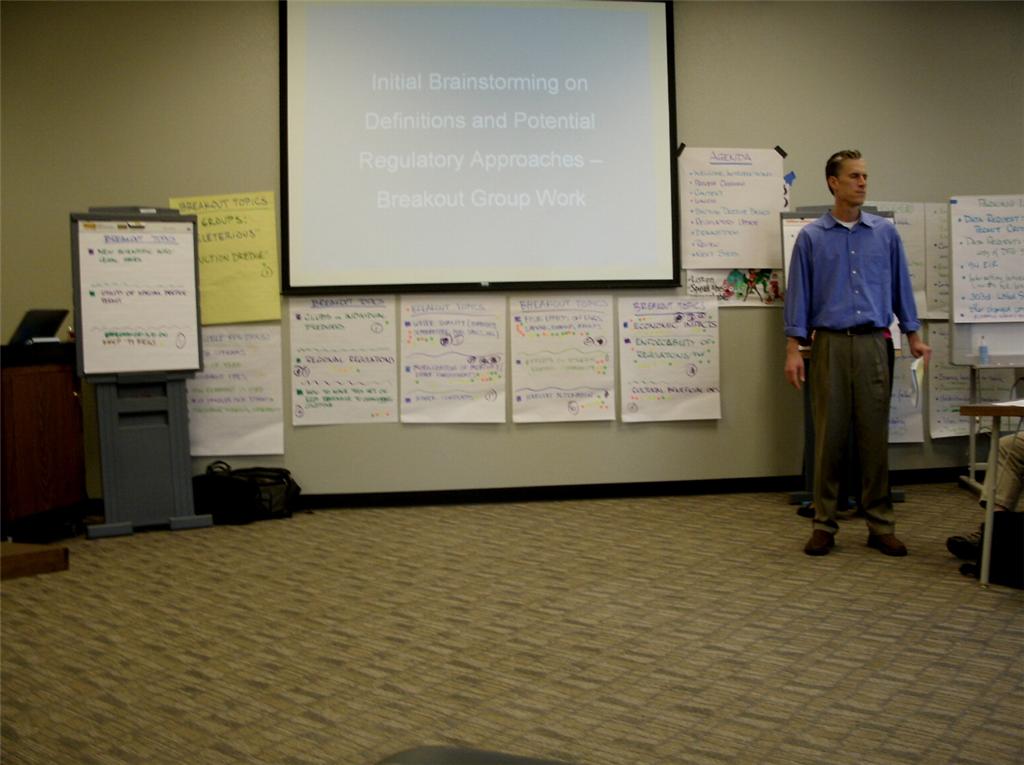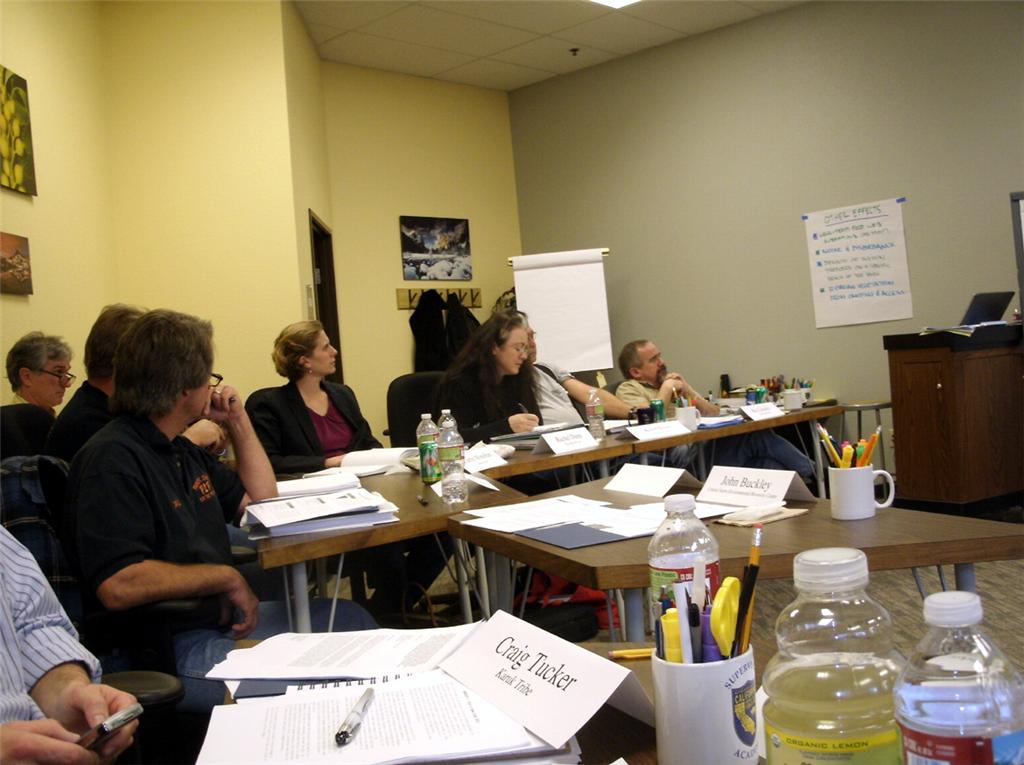 by old gold miner » Fri Feb 12, 2010 12:32 am
by old gold miner » Fri Feb 12, 2010 12:32 am
Public land under the ownership of the United States.
“The power over the disposition of such land and the minerals contained therein is in Congress and not in the states“.
(McLemore v. Express Oil Co. (1910) 158 Cal. 559, 562; Moore v. Smaw (1861) 17 Cal. 199, 218-219.)
~~~~~~~~~~~~~~~
Small scale suction dredging is the primary exploration, and production method for recovering placer gold on mining claims on federal public domain lands, open to mineral entry under the General Mining Laws (30 USC § 22 et., seq). The vast majority of all small scale suction dredge gold mining in California takes place on unpatented, or patented mining claims situated on or within federal public domain lands. With only rare exception, small scale suction dredging is the only economically viable means that ordinary men have to economically benefit from private property rights granted to them under 30 USC § 22.
Indisputably, 30 USC § 22 is a federal land disposal law, including the right to mine applicable minerals therein. “Lands open to purchase by citizens: Except as otherwise provided, all valuable mineral deposits in lands belonging to the United States, …shall be free and open to exploration and purchase, and the lands in which they are found to occupation and purchase, by citizens of the United States … under regulations prescribed by law, and according to the local customs or rules of miners in the several mining districts, so far as the same are applicable and not inconsistent with the laws of the United States“. 30 USC § 22.
On September 9, 1850, Congress passed an Act for the Admission of California into the Union. 31 Cong. Ch. 50, September 9, 1850, 9 Stat. 452. In critical part, that Act states as follows:
“Sec. 3. And be it further enacted, That the said State of California is admitted into the Union upon the express condition that the people of said State, through their legislature or otherwise, shall never interfere with the primary disposal of the public lands within its limits, and shall pass no law and do no act whereby the title of the United States to, and right to dispose of, the same shall be impaired or questioned. . .”
As such, Congress clearly abrogated, and California forever expressly conceded all rights to control the disposition of how the federal government disposes of federal public domain lands within its boundaries. Furthermore, provisions of SB 670 prohibit all suction dredge gold mining statewide in California, for an indefinite period of time. As such, SB 670 suction dredging gold mining ban is an unlawful constraint on mining claim owners use of federal public domain in California.
When a State through its entities or officials voluntarily elects to participate in a federal program knowing that a consequence of participation is a waiver of immunity from suit, the State’s waiver of immunity is just as much an “intentional relinquishment or abandonment of a known right or privilege” (College Sav., 527 U.S. at 682) as a waiver that is expressly embodied in state law.
Congress has authority under the Constitution to condition state access to a federal program or benefit on a waiver of the State’s immunity from suit, federal law determines the consequences of the State’s voluntary actions, and any state effort to negate that condition through reliance on state law would be preempted by the Supremacy Clause. Lawrence County v. Lead-Deadwood Sch. Dist. No. 40-1, 469 U.S. 256, 257-258 (1985)
A State may not simultaneously accept the benefits of a federal program and fail to comply with the conditions upon which those benefits are extended. Townsend v. Swank, 404 U.S. 282, 286 (1971) (state rule that conflicts with the conditions on which federal funds are offered is “invalid under the Supremacy Clause”).
Furthermore, less than 5,000 acres of federal public domain lands may only be withdrawn from entry, occupation and use under The General Mining Laws by the Secretary of Interior. More than 5,000 acres can only be withdrawn with the explicit consent of Congress pursuit to provisions of the Federal Land Policy and Management Act of 1976 (FLPMA), 43 U.S.C. §1701 et seq.
FLPMA 43 U. S. C. § 1702. Definitions (e) The term “public lands” means any land and interest in land owned by the United States within the several States and administered by the Secretary of the Interior through the Bureau of Land Management, without regard to how the United States acquired ownership.
(j) The term “withdrawal” means withholding an area of Federal land from settlement, sale, location, or entry, under some or all of the general land laws, for the purpose of limiting activities under those laws in order to maintain other public values in the area or reserving the area for a particular public purpose or program;
FLPMA 43 U.S.C. §1712 (e) (3) Withdrawals made pursuant to section 204 of this Act [43 USCS Sec. 1714] may be used in carrying out management decisions, but public lands shall be removed from or restored to the operation of the Mining Law of 1872, as amended (R.S. 2318-2352; 30 U.S.C. 21 et seq.) or transferred to another department, bureau, or agency only by withdrawal action pursuant to section 204 [43 USCS Sec. 1714] or other action pursuant to applicable law:
FLPMA 43 U.S.C. § 1732(b)… “no provision of this section or any other section of this Act shall in any way amend the Mining Law of 1872 or impair the rights of any locators or claims under that Act, including, but not limited to, rights of ingress and egress“. FLPMA § 302(b).
A regulation (a de facto closure) which removes [public domain lands] from its prior use, or from mineral entry, is a withdrawal within the meaning of the Federal Land Planning and Management Act of 1976, (FLPMA). (Mountain States Legal Foundation v. Andrus, (D.C. (Wyo.) 1980) 499 F.Supp. 383; 36 CFR §13.22(c)(4); 50 CFR § 36.42(c)(4).)
It “operates to remove lands from public use” and, as such, constitutes a “withdrawal” subject to FLPMA. (Mountain States Legal Foundation v. Andrus, (D.C. (Wyo.) 1980) 499 F.Supp. 383; FLPMA §204(c); 43 USCA §1714(c); FLPMA §103(j); 43 USCA §1702(j).)
State jurisdiction over federal land "does not extend to any matter that is not consistent with full power in the United States to protect its lands, to control their use and to prescribe in what manner others may acquire rights in them." Utah Power, 243 U.S. at 404.
If Congress so chooses, federal legislation, together with the policies and objectives encompassed therein, necessarily override and preempt conflicting state laws, policies, and objectives under the Constitution's Supremacy Clause, U.S. Const. art. VI, cl. 2. See Kleppe, 426 U.S. at 543 ("'A different rule would place the public domain of the United States completely at the mercy of [the State]'" (quoting Camfield v. United States, 167 U.S. 518, 526 (1897)).


